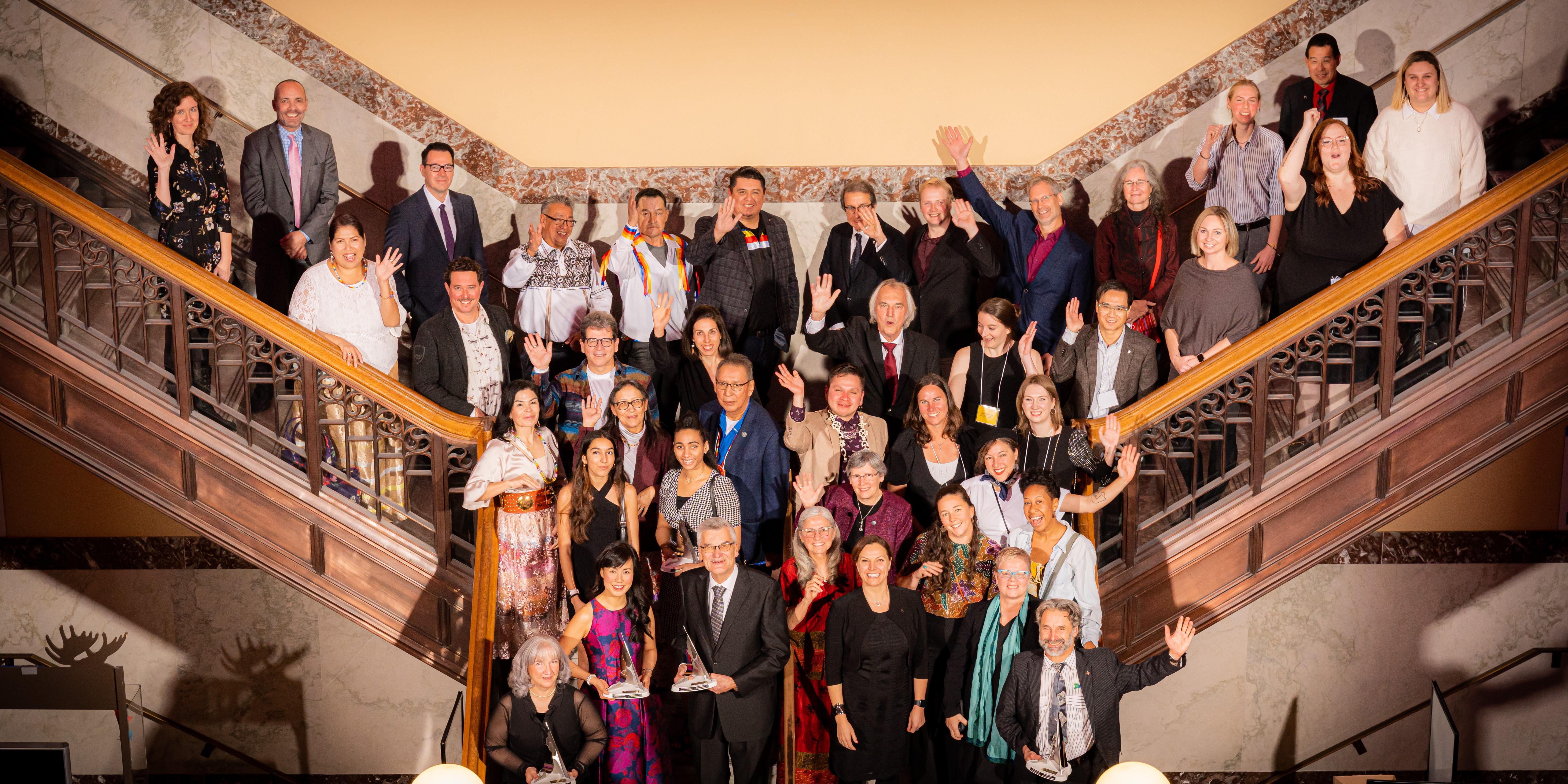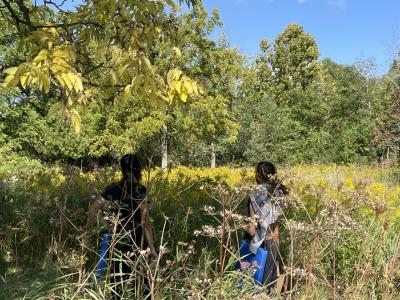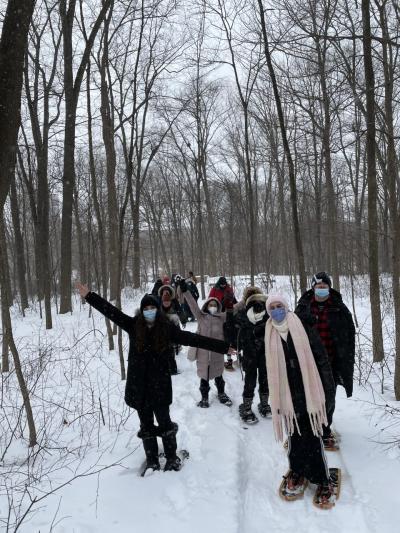Humber College’s Early Childhood Education (ECE) program’s Two-Eyed Land-Based Play and Co-Learning course was recently honoured as a finalist for the Canadian Museum of Nature’s Nature Inspiration awards in the Not-for-Profit (Large Organization) category.
Humber was represented by Louise Zimanyi, professor, Early Childhood Education, and Lynn Short, environmental stewardship coordinator, Humber Arboretum and Indigenous curriculum specialist for Land and Culture Based Programs, on behalf of the current co-teaching faculty team including Bora Kim, Cara Loft, Lyndsay Macdonald and Maya-Rose Simon at the ceremony that was held on November 14 in Ottawa at the Canadian Museum of Nature.

“We are delighted to be honoured in this way, giving visibility to the work we are doing at Humber and inspiring others to do the same,” said Zimanyi.
Embracing the principles of Etuaptmumk – Two-Eyed Seeing in the Mi’kmaq language as brought forth by Elder Albert Marshall, the new course, which is the only one of its kind in Canada at the post-secondary level, braids Indigenous and non-Indigenous perspectives and ways of knowing together for the benefit of all.
The course plants the seeds of sustainability by engaging in meaningful Land-based relationships and giving back in return for what we receive from the Earth. It’s uniquely co-taught by Indigenous and non-Indigenous faculty and supported by local and regional Indigenous Elders and Knowledge Holders.

Short said it’s important to note that this work is deeply collaborative involving Humber’s Indigenous Education and Engagement department, the Humber Arboretum and Humber’s Executive Team. The Two-Eyed Land-Based Play and Co-Learning faculty team is also supported by local and regional Indigenous mentors and storytellers and the Lawson Foundation’s innovative Outdoor Play Strategy 2.
Zimanyi added it demonstrates that co-learning is critical to decolonizing education in response to the Truth and Reconciliation Calls to Action.
The awards have been presented annually since 2014 and recognize individuals, groups, and organizations across six categories whose leadership and innovation connect Canadians with the natural world — a link that is increasingly important with mounting environmental challenges facing the planet.
“This year’s finalists remind us of the many innovative ways through which Canadians are making a difference in supporting a sustainable future,” said Dr. Danika Goosney, president and CEO of the Canadian Museum of Nature and member of the selection jury.
Kim said some of the ECE students who have participated in the course have remarked that they are more engaged in class. Kim added that Indigenous students embraced the opportunity to connect to the Land weekly and through assignments and, for some students, it feels like they’re reconnecting with their own childhood through the course.
